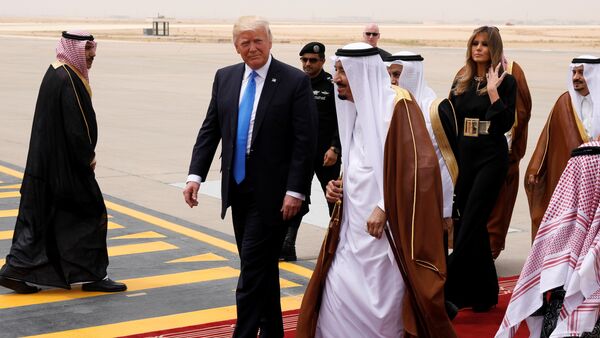The announcement came at the same time as the committee’s report, entitled “Whistleblowers Raise Grave Concerns with Trump Administration’s Efforts to Transfer Sensitive Nuclear Technology to Saudi Arabia” prepared for Chairman Elijah E. Cummings, which suggested that senior White House officials pushed for the sale of nuclear technology to Saudi Arabia despite warnings from ethics advisers and national security officials.
“Based on this snapshot of events, the committee is now launching an investigation to determine whether the actions being pursued by the Trump administration are in the national security interests of the United States or, rather, serve those who stand to gain financially as a result of this potential change in US foreign policy,” the report said.
Cummings, according to the Hill, has sent letters to several people and organizations allegedly involved with promoting the plan, including the White House, the CIA, the Flynn Intel Group, IP3 and the departments of Commerce, Defence, Energy, State and Treasury. The version of the letter sent to the White House, released by the committee, asks for documents by 5 March related to the nuclear power plan from Trump's inauguration to the present.
The report also raised concerns about former national security adviser Michael Flynn’s connection to a company dedicated to building nuclear plants in Saudi Arabia. It cites unnamed whistleblowers who claimed they witnessed “abnormal acts” inside the White House regarding efforts to sell Saudi Arabia nuclear energy reactors.
The whistleblowers “have warned of conflicts of interest among top White House advisers that could implicate federal criminal statutes,” and “have also warned about a working environment inside the White House marked by chaos, dysfunction, and backbiting. And they have warned about political appointees ignoring directives from top ethics advisors at the White House who repeatedly and unsuccessfully ordered senior Trump administration officials to halt their efforts.”
According to the report, days after the presidential inauguration, IP3 sent Flynn a memo intended for Trump to approve that endorsed the Middle East Marshall Plan and named Trump confidant Tom Barrack as the special representative to carry out the nuclear power proposal. However, the National Security Council’s ethics and legal advisers reportedly concluded that Flynn had a potential conflict of interest that could violate the law, and as a result “NSC Legal Advisor John Eisenberg instructed NSC staff to cease all work on the plan,” the report said. However, the report claims, the White House continued work on the plan after Flynn’s departure as national security adviser in February 2017.
The report also states that from 24 March 2017 that multiple employees raised concerns to the then-National Security Council legal adviser H.R. McMaster, who had told staff that they should stop all work on the proposal.
Other examples cited by the report include a 12 February White House meeting between staff and nuclear power developers to discuss sharing nuclear technology with Middle East countries such as Saudi Arabia and Jordan, as well as the President’s son-in-law and adviser Jared Kushner’s trip to Riyadh.




